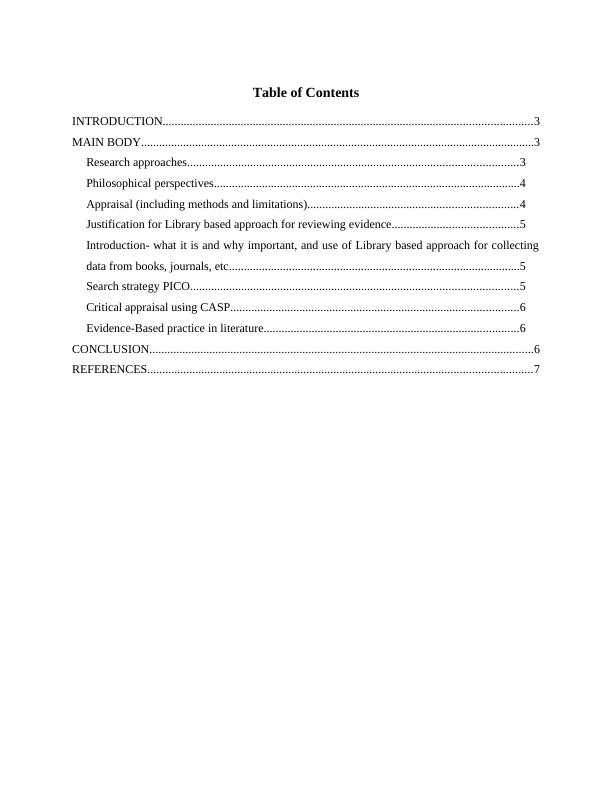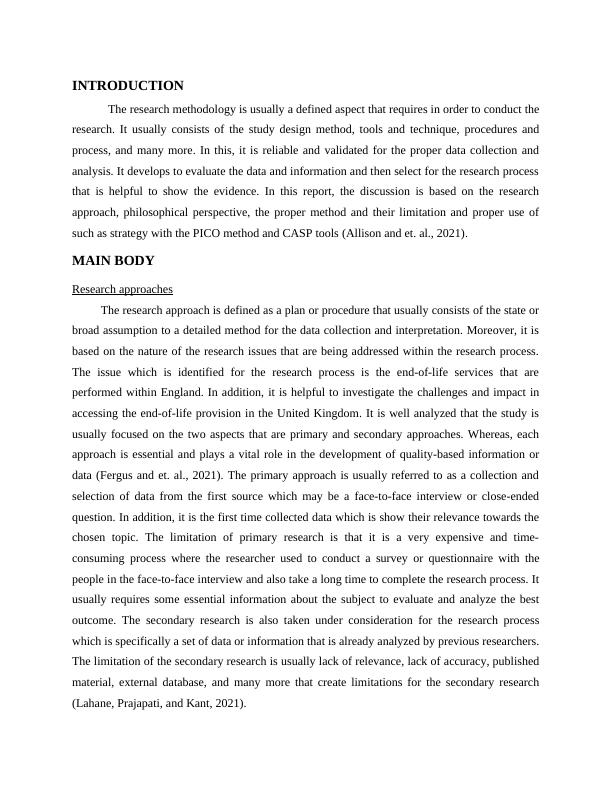A Review of Support Strategies for HSC Professionals in End-of-Life Care
7 Pages1800 Words175 Views
Added on 2023-06-13
About This Document
This research proposal reviews the support strategies for HSC professionals working for service users in end-of-life care. It discusses research approaches, philosophical perspectives, appraisal methods, and the use of a library-based approach for collecting data from books and journals.
A Review of Support Strategies for HSC Professionals in End-of-Life Care
Added on 2023-06-13
ShareRelated Documents
End of preview
Want to access all the pages? Upload your documents or become a member.
Research in Nursing
|9
|2980
|81
Critical Appraisal of Primary and Secondary Evidence on the Use of SSRIs in Major Depressive Disorder
|16
|3757
|247
Nursing Practices: Importance of Evidence-Based Practice in Healthcare
|10
|3157
|454
DIKW Model and CRAAP Test in Research Methods
|13
|2697
|214
Comparison of Quantitative and Qualitative Research
|12
|3650
|188
UK collage of business and computing (UKCBC)
|19
|3409
|28



